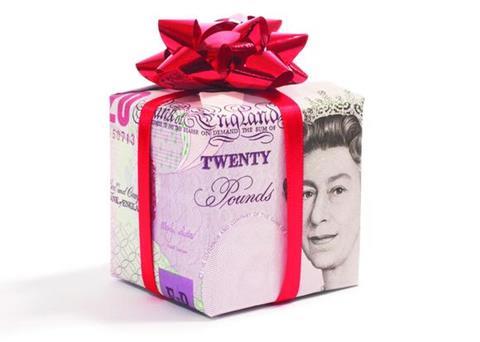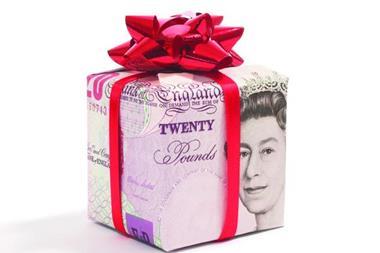Some companies are no better at tackling corruption than three years ago, despite new anti-bribery laws

Chinese and Russian companies are seen as most likely to commit bribery abroad, according to Transparency International’s Bribe Payers Index 2011.
In the fifth edition of its Bribe Payers Index, issued in November, the global anti-corruption coalition ranked the world’s 28 largest economies by the likelihood of their firms to bribe abroad. The score system ranks countries from 0 to 10, 0 for ‘always’ and 10 for ‘never’ committing bribery.
The Index captures the supply side of international bribery (the bribe payers) in the private sector. The results are based on the individual evaluations of 3,016 senior business executives in 30 countries around the world, asked about their perceptions of the likelihood of companies to engage in bribery abroad. The index includes all G20 countries and other key regional economic strading powers.
None of the 28 countries assessed is considered completely free of bribery. Russia and China got the lowest scores, with 6.1 and 6.5, respectively, while the Netherlands and Switzerland only scored 8.8 on a joint first rank.
It is significant that there are hardly any improvements in the index since the last was compiled in 2008. Most surprising was the UK. Since the implementation of the UK Bribery Act earlier this year, said to be one of the toughest anti-bribery laws worldwide, one of the first things anti-bribery campaigners will have been looking for is a significant improvement in corruption cases and enforcement.
But the UK actually moved three places down the ranking, compared with 2008, and now ranks eighth on the index.
“Over the years, we’ve always heard governments saying to us that they cannot solve this problem because it’s the companies themselves that have to. Our data clearly shows that government regulation matters a great deal, there’s no escaping from that any more,” says Transparency International chair Huguette Labelle.
International sport hit by bribery scandals
Two of the world’s most popular sports, football and cricket, have both recently been tarnished by corruption scandals.
In cricket, the scandal involved players accepting bribes to fix betting results. In addition, a number of allegations have been levelled at FIFA, football’s governing authority, about corrupt payments surrounding World Cup TV rights and hosting privileges.
FIFA has announced that it will introduce reforms to address these issues and instigate an investigation into its
own conduct.
But “there is still a lot of work to do to restore credibility”, said Transparency International. “It will be a big challenge to implement the reforms and it will require a change of culture in the whole world of football,” it says.
Public projects and construction are perceived to be the sectors most at risk of bribery, according to the research. Agriculture and light manufacturing were the least likely to be involved in bribery.
Bribes to secure influence over policy, regulatory and legislative decisions are almost as likely as kickbacks between two private firms, according to the study.
Labelle urges companies themselves to strengthen the enforcements of anti-corruption procedures and improve transparency, especially to tackle ‘firm-to-firm’ bribery.
While the UK Bribery Act became law in July, a panel discussion between members of Transparency International and its partners Ernst & Young at the index’s launch in November suggested that it was yet to have a big impact (note: all panellists wished to remain anonymous).
“[The Bribe Payers Index] tells us that so many business executives around the world know about others bribing, but aren’t doing much to tell or whistleblow,” said one member of the audience at the index’s launch. “That’s a rather disturbing piece of information.”
Differing cultural perceptions over what constitutes bribery is also a concern. The line between a bribe and ‘corporate hospitality’ or an innocent gift can be a difficult one to draw. In some cultures, rejecting a gift could be seen as extremely offensive. A panel member put it simply: “If you receive a gift andyou’re confident to put it on your website, you’re fine.”
Business principles in combating bribery
The following business principles have been developed to assist companies to develop approaches to combat bribery in their activities. They
are based on a fundamental commitment to the values of integrity, transparency and accountability. The enterprise should:
- prohibit bribery in any form, whether direct or indirect;
- commit to implementing a programme to counter bribery; and aim to create and maintain a trust-based and inclusive internal culture in which bribery is not tolerated.
Pressure by regulators is pushing companies to address these issues. Ultimately, as panellists agreed, a corrupt company will fail. It’s no good “hoping that no one will notice”, said one panellist. Referring to the Arab Spring, a panel member commented that the world has “never seen people demand public accountability to the extent that they do now”, and that’s the pressure that will fundamentally change the dark world of corruption.
Transparency International is confident that attitudes towards corporate bribery will change for the better. In fact, the team was convinced that the bringing in of appropriate procedures (such as in the UK) are a sign of a commitment. This proves there are pressures in the right direction, it said.
Recommendations to companies imply that corporate structures should be more transparent, reporting on anti-corruption programmes should meet international standards (such as the UN Global Compact) and political contributions as well as lobbying should be included in corporate reporting.
To advance the fight against bribery, Transparency International suggested bribery and corruption risk should be assessed across companies’ entire supply chains, and due diligence should be undertaken in evaluating the anti-bribery programmes of suppliers and contractors.
Governments are also stepping up and taking effective action both at the national level and through international groups such as the G20, EU, UN and Organisation for Economic Cooperation and Development.
If its recommendations are taken up, Transparency International is optimistic that the next Bribe Payers Index could see some big improvements.
Key points
- There have been few improvements in the index since it was last compiled in 2008
- None of the 28 countries listed in the index is considered completely free of bribery
- Russia and China got the worst scores, while Switzerland and the Netherlands were joint first
- The UK fell three places in the rankings - indicating that perceived bribery had got worse




















No comments yet